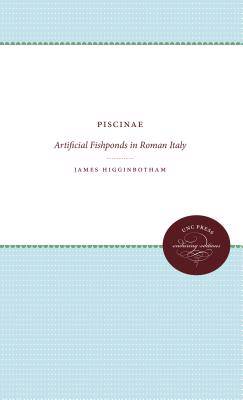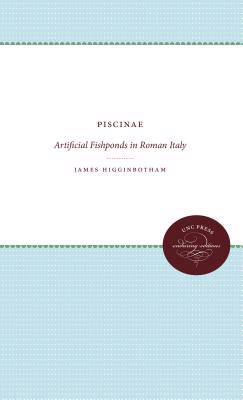
- Retrait gratuit dans votre magasin Club
- 7.000.000 titres dans notre catalogue
- Payer en toute sécurité
- Toujours un magasin près de chez vous
- Retrait gratuit dans votre magasin Club
- 7.000.0000 titres dans notre catalogue
- Payer en toute sécurité
- Toujours un magasin près de chez vous
Description
Pisciculture -- the process of raising fish -- held a lasting fascination for the people of ancient Rome. Whether bred for household consumption, cultivated for sale at market, or simply kept in confinement for reasons of aesthetic appreciation, fish remained an important commodity and prominent cultural symbol throughout the periods of the Roman Republic and early Empire. Roman pisciculture reached its greatest level of sophistication, though, between the first century b.c. and the first century a.d. with the development of a highly specialized architectural element: the piscina, or artificial fishpond. Based on a thorough examination of the archaeological record and complemented by site plans, maps, and photographs, James Higginbotham's work represents the most comprehensive study of the fishponds of Roman Italy. Higginbotham covers the technical aspects of Roman fishponds -- their design, construction, and operation -- and places the piscinae within their social, political, and economic context. He argues that in a society fascinated by pisciculture, ownership of a fishpond was a powerful display of wealth and social status and, ultimately, a manifestation of the intense competition between aristocratic Roman families that would eventually lead to civil war.
Originally published in 1997.
A UNC Press Enduring Edition -- UNC Press Enduring Editions use the latest in digital technology to make available again books from our distinguished backlist that were previously out of print. These editions are published unaltered from the original, and are presented in affordable paperback formats, bringing readers both historical and cultural value.
Originally published in 1997.
A UNC Press Enduring Edition -- UNC Press Enduring Editions use the latest in digital technology to make available again books from our distinguished backlist that were previously out of print. These editions are published unaltered from the original, and are presented in affordable paperback formats, bringing readers both historical and cultural value.
Spécifications
Parties prenantes
- Auteur(s) :
- Editeur:
Contenu
- Nombre de pages :
- 312
- Langue:
- Anglais
- Collection :
Caractéristiques
- EAN:
- 9780807836040
- Date de parution :
- 01-09-12
- Format:
- Livre broché
- Format numérique:
- Trade paperback (VS)
- Dimensions :
- 155 mm x 231 mm
- Poids :
- 453 g

Les avis
Nous publions uniquement les avis qui respectent les conditions requises. Consultez nos conditions pour les avis.






